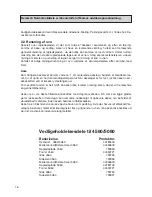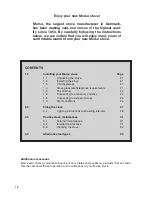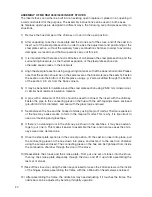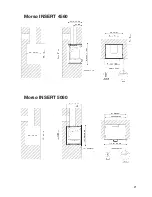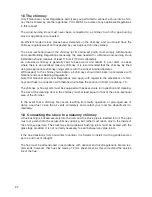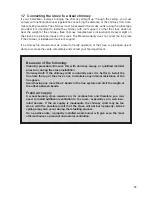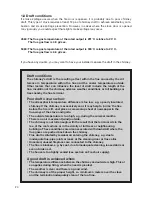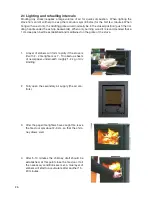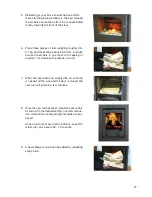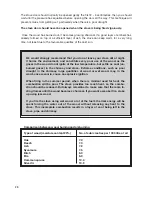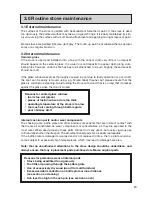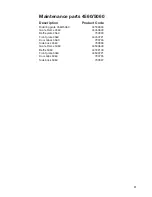
9
DK ENG
3.0 Routine stove maintenance
3.1 external maintenance
The surface of the stove is painted with heat-resistant Senotherm paint. If the stove is used
too vigorously, the painted surface may take-on a greyish tinge. It is easily maintained by sim-
ply vacuuming the surface with a soft brush attachment and applying two light layers of paint.
Morsø stoves are painted in Morsø dark grey. The touch-up paint is available either as aerosol
spray or as regular brush-on.
3.2 Internal maintenance
Ceramic glass
If the stove is used and installed onto a flue with the correct draft, very little or no deposits
should appear on the ceramic glass. It is usual for soot deposits to appear during long slum-
bering fires however, once the fire has been re-established to a burn brightly, these deposits
should burn off.
If the glass window becomes thoroughly covered in soot due to faulty operation or poor draft,
the soot can be easily removed using, e.g. Morsø Glass Cleaner, but please ensure that the
glass is cold before cleaning. Avoid fuelling the stove with wood that is so long that it presses
against the glass when the door is closed.
Internal cast-iron parts and/or wear components
The shaking grate, baffle plate and other internal components that are in direct contact with
the fire are all constituted as ‘wear’ components or consumables, as, they are exposed to the
most wear. When used properly, these parts will last for many years, but overly vigorous use
will naturally shorten the lifespan. The aforementioned parts are all easily replaceable.
If the baffle plate is damaged or warped and is not replaced in time, the top plate could be-
come subject to excessively high temperatures, which may lead to damage here also.
note: that no unauthorised alterations to the stove design should be undertaken, and
always ensure that any replacement parts purchased are Morsø original parts.
Reasons for premature wear of internal parts
• Stove being used/fired too vigorously
• too little air passing through the bottom grate
• Use of excessively dry wood (wood from old furniture)
• excessive debris collection on baffle plate or inner fireback
(see section on cleaning)
• Ash level too high in the ash pan (see section on ash)
Reasons for sooted glass window:
• fuel is too wet (green)
• pieces of fuel/uncut wood are too thick
• operating temperature of the stove is too low
• too much air coming through bottom grate
• poor chimney draft


